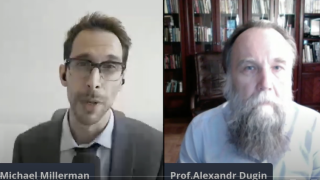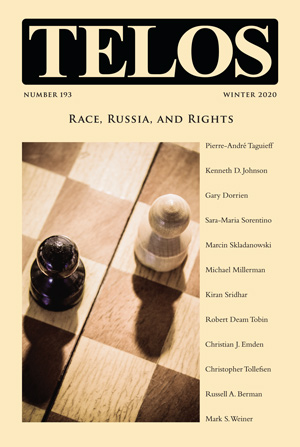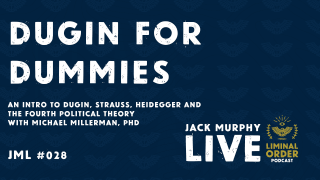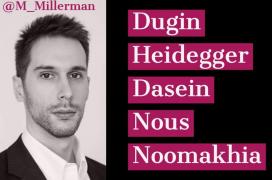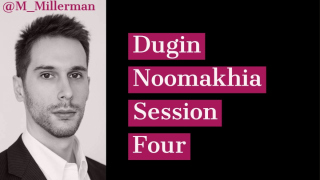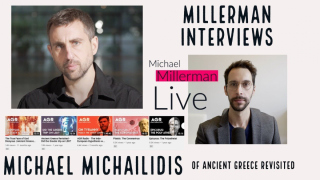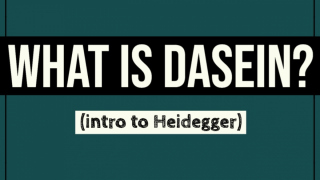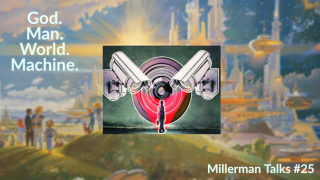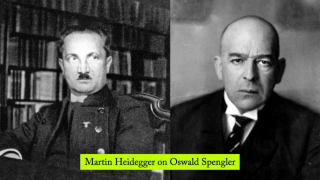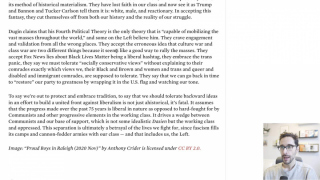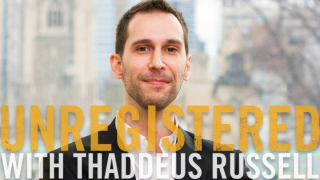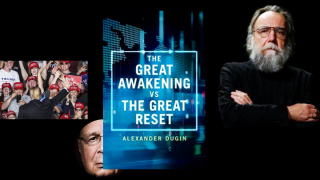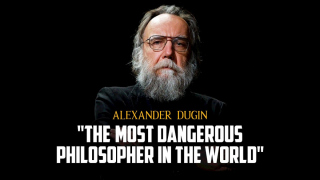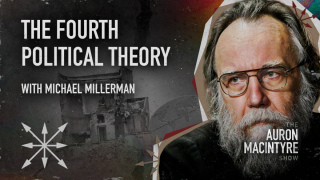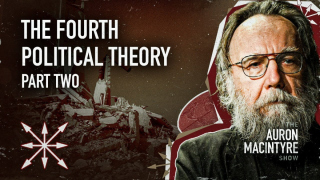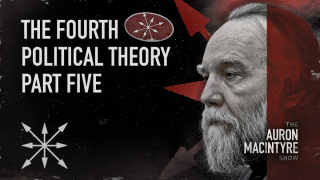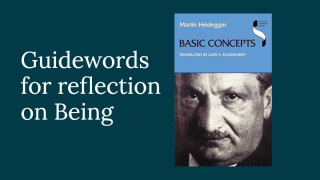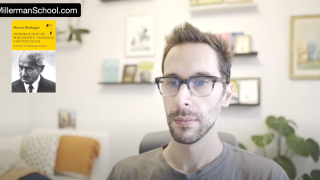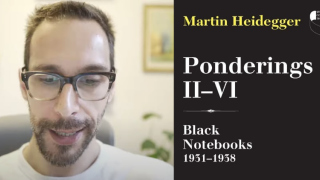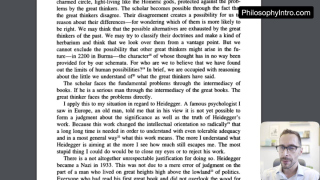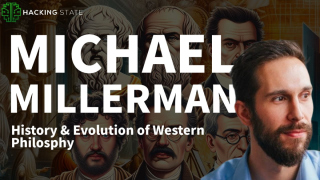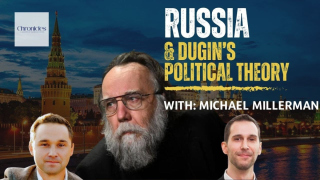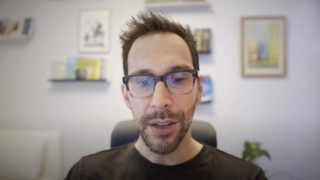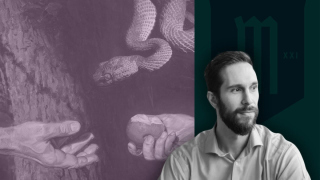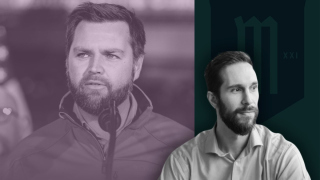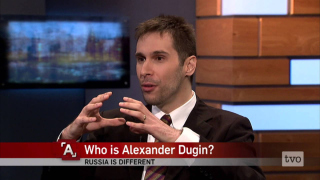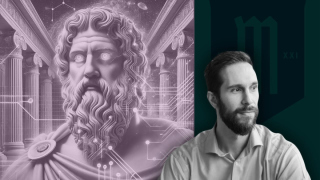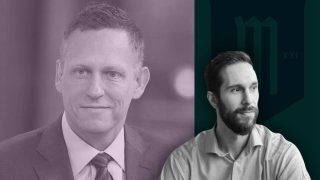M.Millerman Seminars on Noomakhia/4TP/Philosophy/Sociology
Millerman Talks is a show about Political Philosophy and Political Theory, hosted by Michael Millerman.
Topics include: Leo Strauss on the Noble Lie, Martin Heidegger's Philosophy of Another Beginning, Alexander Dugin and the Fourth Political Theory, Plato's Laws, Right-Wing Anti-Liberalism, and more.
Listen to audio
M.Millerman Seminars on Noomakhia/4TP/Philosophy/Sociology
M.Millerman Seminars on Noomakhia/4TP/Philosophy/Sociology
Watch the video
-
Interview with Alexander Dugin (Philosophy, 4PT, Education, Mysticism, Theatre)
-
Michael Millerman on Alexander Dugin’s Populism
-
Dugin for dummies
-
Introduction to Alexander Dugin's Noomakhia (4PT, Dasein, Nous)
-
Noomakhia Session 2 (The Historial, Becoming Platonists, the Three Logoi - Apollo, Dionysus, Cybele)
-
Noomakhia Session 3 (Plato, Aristotle, Dionysus, Gnosticism, Materialism, and more)
-
Introduction to Alexander Dugin's Noomakhia - Final Session (Cybele, Materialism, Geosophy, Dasein)
-
Leo Strauss on Persecution and Esoteric Writing with Michael Millerman
-
Panel Show on JML with Spencer Klavan and Michael Millerman
-
Interview with Kenji Hayakawa, author of Echo and Groa (Heidegger, Hegel, Joyce, Bjork, and more!)
-
Interview with Michael Michailidis of Ancient Greece Revisited (Castoriadis, Nietzsche, and more!)
-
What is Dasein? (Intro to Heidegger) - Michael Millerman
-
Getting Started with Heidegger's Being and Time
-
Bronze Age Mindset: A Book On Fire - Michael Millerman
-
The Philosophical Analysis of Manliness, Lecture 1: Courage (Plato's Laches)
-
Thinking about Technology: God, Man, and the World
-
Martin Heidegger on Oswald Spengler (Millerman Talks 27)
-
Communist Party of USA vs. Dugin
-
Scrolling Twitter / Dugin vs Commies
-
Jordan Peterson vs. Plato on truth
-
Unregistered 197: Michael Millerman (VIDEO)
-
Alexander Dugin vs. The Great Reset
-
"The Most Dangerous Philosopher in the World" with Dr Michael Millerman
-
The Fourth Political Theory | Guest: Michael Millerman | 3/22/23
-
The Fourth Political Theory: Part Two | Guest Michael Millerman | 4/13/24
-
The Fourth Political Theory: Part Three | Guest: Michael Millerman | 4/21/23
-
Fourth Political Theory: Part Four | Guest: Michael Millerman | 5/11/23
-
The Fourth Political Theory: Part Five | Guest: Michael Millerman | 5/19/23
-
Alexander Dugin on Censorship (Article Reading)
-
Dugin the occultist? National divorce? And other topics...
-
Alexander Dugin on The Metaphysics of National Bolshevism
-
How Dugin Influences the West + Thiel on Wokeness (Article Reading)
-
Heidegger: Basic Concepts (GrundBegriffe)
-
Heidegger's Basic Concepts: First Division
-
More Heidegger: Basic Concepts (Second Division)
-
Heidegger: Basic Concepts (Division Three)
-
Heidegger: Introduction to Philosophy
-
Reading Martin Heidegger's Black Notebooks
-
Alexander Dugin on Postmodernism
-
Leo Strauss on Existentialism
-
Hacking State 20 - Michael Millerman: Heidegger, Dugin, and Strauss - The Rewilding of Philosophy
-
Russia, and Dugin's Political Theory - Michael Millerman
-
Julius Evola Against the Modern World
-
Alexander Dugin on Tucker Carlson! - Michael Millerman
-
Julius Evola's 15 Principles of the True State
-
Alexander Dugin on Christianity and Neo-Platonism — Michael Millerman
-
Dugin, Strauss, and Heidegger on the Crisis of Modernity
-
How to Understand Martin Heidegger — Michael Millerman
-
JD Vance and the Right — Michael Millerman
-
Curtis Yarvin and JD Vance — Michael Millerman
-
Can computers understand? — Michael Millerman
-
Michael Millerman: Who is Alexander Dugin?
-
The Ancient Roots of the Tech Right/Trad Right Split
-
Peter Thiel on Transhumanism and the Antichrist



